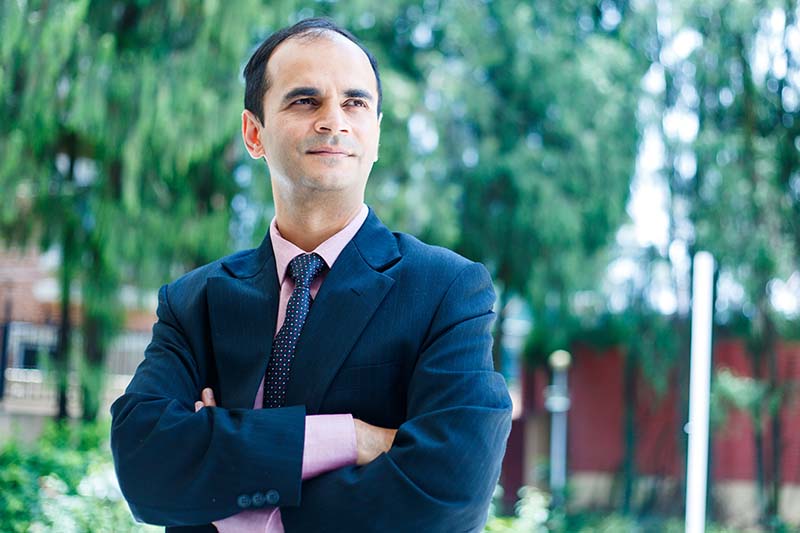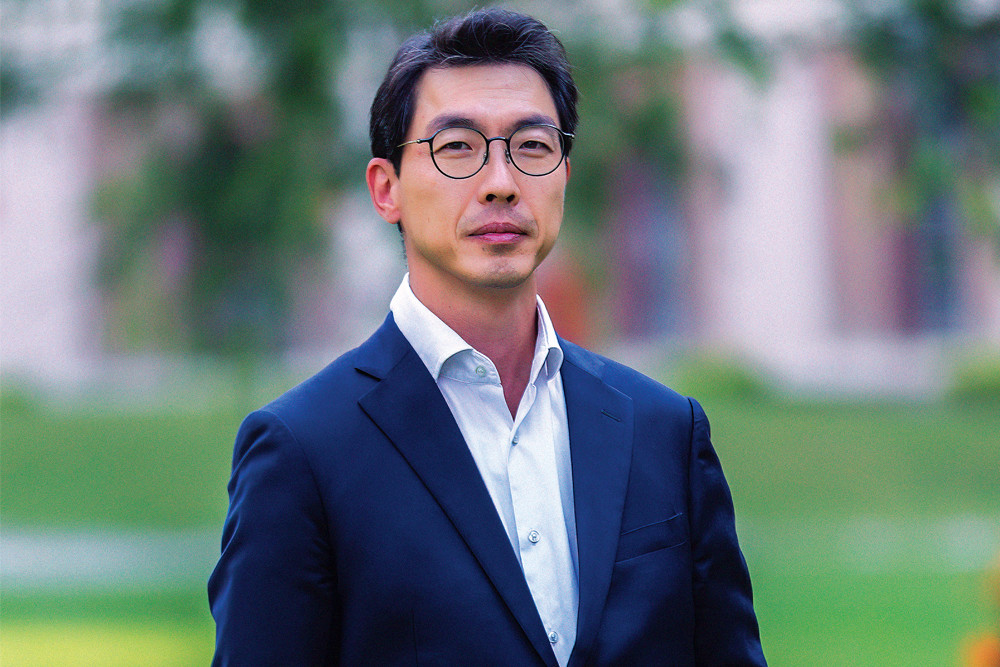
Daniel Rex is the CEO of Toastmasters International, a worldwide nonprofit organisation that empowers individuals by training them to become more effective communicators and leaders. Rex has worked for the organisation for over 27 years fulfilling several different roles. His previous positions include DeputyExecutive Director, Director of Communications and Marketing, Marketing Division Manager and Membership Manager.
Rex completed his BA degree in Modern Languages from Southern Utah University in Cedar City, Utah and an MBA in International Management from the Thunderbird School of Global Management in Glendale, Arizona. Along with this, he is certified in the Leadership for Senior Executives course through Harvard Business School, and the Executive Leadership Program through the University of California, Berkeley. He has also completed the Strategic Leadership Programme through the University of Oxford. The following is based on an excerpts of an interview Paresh Khetan of Business 360˚ had with him:

Firstly, what is Toastmasters?
Toastmasters is an organisation that empowers men and women to become more effective communicators and leaders and we do that through Toastmasters Clubs. 20-25 people get together and practice communication and leadership. In a classroom environment you read a book, somebody lectures you about itand then you take a test afterwards. Toastmasters isn’t quite like that. We observe others practicing their skills, we have reference materials and learning materials and then we get up and practice ourselves. So, nearly every meeting everyone participates in some way. Someone gives a speech and someone evaluates it, someone conducts a meeting, someone asks impromptu speaking questions and other people answer. Those roles continually rotate. One week while you may be giving a speech, the next week you are conducting the meeting and the next week you are evaluating someone else’s speech. All of these are done based on a set of criteria so that each role can be evaluated and each speech is a skill-building opportunity. Each speech you learn how to use visual-aids, you learn how to use your voice, you learn how to better organise your presentation, how to have great eye contact. All those kinds of things that lead to overall presentation mastery are part of the program. What is your history with the organisation and what caused you to advocate for it? When I was in a graduate school, I saw Toastmasters for the first time and went to a meeting. Then a few years later, I was looking for a job and there was an opportunity at Toastmasters. I got the job and said to myself ‘I’ll stay for two or three years’. I’ve been there for 27 years. I am an employee as the CEO, but I am also a member of the club and fully participate in the program and do all of the above mentioned roles as well. So I am a true believer in the program. Before joining Toastmasters, I wasn’t afraid to speak and I had done some teaching and speaking, but until I was in Toastmasters I didn’t realise how much grooming I required. I wasn’t doing the best for myself and I certainly wasn’t doing the best for the audience.
Your focus is on communication and leadership, but does joining the organisation have external benefits? Links to jobs or an alumni network?
To start with a few numbers, we have 16,500 of these clubs in 141 countries and each week about 350,000 people go to a meeting. People stay an average of about 2-2.5 years, so there are hundreds of thousands of people out there who have been our members. It’s not as easy to connect with them as it is through an alumni network, but what happens is when you are job hunting or networking, you’ll bump into people who have been Toastmasters who are willing to help you. The most direct benefit is that when you are looking for your first job or you are in your first job and looking for your first promotion, seasoned leaders are going to be looking for the next generation of managers and directors who are great communicators. I was talking yesterday to a software company in Delhi and they realised that the best software programmer is not going to be the best manager. You need people with the right skills to lead teams and to lead divisions and that’s where Toastmasters comes in. There is a direct correlation of benefit between the skills that you learn and the path of your career. You can also take those skills and apply them in your community. We have people who become community leaders, national government leaders who have been part of the organisation as well.Could you elaborate on that last bit of information?
The skills that you learn are applicable to every single place. Within the community of an organisation, like tomorrow I am meeting with one of our clubs at Standard Chartered Bank, the community of that club is inside the bank and the bank has purposely bought it in to build the skills of the members of that community within the bank. But there’s another group we are going to meet with tonight and it’s not tied directly to an organisation. So all of the people who come to this meeting are from different educational backgrounds, different careers, so they come in and they learn these skills. They will apply these skills in their career, in their community, with their friends, with their neighbours, with things that they believe in. Community benefits very quickly and dramatically.This is your first visit to Nepal. How has the experience been so far?
It’s my first visit to Nepal. I first became aware of Toastmasters in Nepal back in 1991. So we have a pretty long history here and we have reached this level of nine clubs which is important to us. When we get to that number usually things start to speed up a little bit and I will be very surprised if we are not, within five years, close to 25-30 clubs. I was in Delhi for a conference and there is a geographic area that is called District 41 that is part of North and East India, Nepal and Bangladesh. So I was attending the conference in Delhi over the last weekend and I thought, ‘Well since I am this close, I need to go and check on things in Nepal and see how our clubs are doing there and get to know some of our members here and those who are helping the organisation move forward’.Is Toastmasters carried out primarily in English or do you adapt to cultures and their languages?
About 90% plus is in English but we have materials in eight languages. In some places there are people who want to do their thinking and preparation in their native language but when they get to the club meeting, they participate in English. In Singapore there are 20 clubs that speak Mandarin and that’s learning material and conducting the meeting.What factors would you attribute to the global expansion of your organisation?
Both my observation and our research show that better communication and better leadership is a global need. Regardless of language, culture, situations and economic development, we all need to be much better at communicating with each other. That makes organisations, families and communities better, even makes countries better. The need and hunger for improvement in these areas is driving our organisation’s growth around the world.
Published Date: December 13, 2017, 12:00 am
Post Comment
E-Magazine

Click Here To Read Full Issue
RELATED Face 2 Face


.jpg)
.jpg)
.jpg)